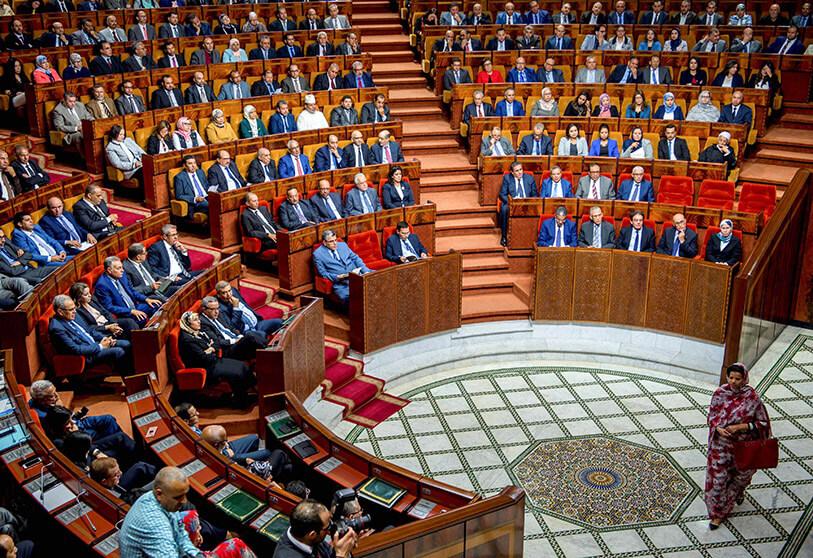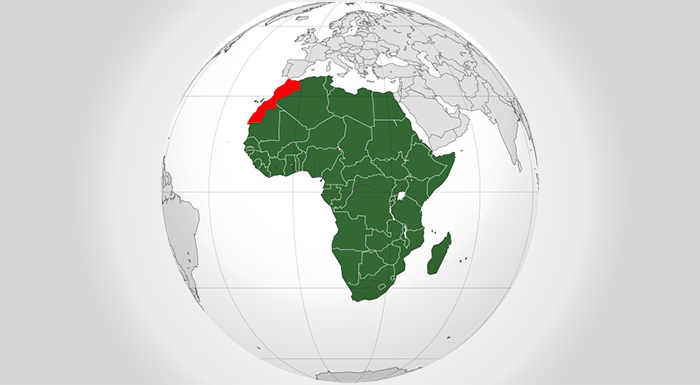Moroccan MPs, representatives of civil society, experts and lawyers have denounced the instrumentalization of the human rights issue, the attacks on Morocco’s territorial integrity and the exploitation of the Pegasus case by some members of the European Parliament, part of smear campaigns and repeated attacks against the Kingdom.
These participants in a conference-debate, organized by the Moroccan Parliament on Wednesday devoted to discussing the hostile, flagrant and repeated attacks against the Kingdom by the European Parliament (EP), denounced the double-standards policy and the neocolonialist logic of the EP in its campaign against Morocco.
Morocco, which has all the means to guarantee and preserve human rights, is not required to provide a certificate of good conduct in this field, they underlined, adding that the Kingdom is not required to justify or prove its innocence.
The campaign waged against Morocco by a faction within the EP has led to the adoption on January 19 of a non-binding resolution on respect for freedom of expression in the Kingdom, recalled House of Representatives Speaker Rachid Talbi Alami.
In this regard, he noted that this campaign continues as an isolated group of MEPs receive a supporter of separatism and terrorism within the European institution, in addition to the holding of debates on spying allegations on officials from a European country.
The list of accusations is long, as evidenced by the deliberate intention of the sponsors of hostile attacks against Morocco, he continued, stressing that the motives and objectives of this aggression are well known, as they target the international positioning of the Kingdom, its economic development and its place on the international and continental chessboard.
The participants have thus laid bare the campaign led by the EP against Morocco and the silence of this European institution regarding the precarious human rights situation in several countries, particularly in Algeria. They also blasted the EP’s double standard regarding sexual assault cases referred to court by ignoring the rights of complainants.
In this connection, political analyst Mustapha Sehimi denounced the EP’s inaction and silence about the precarious human rights situation in Algeria, explaining that MEPs who want to talk about human rights should start with the case of Algeria where many abuses are common place.
Sehimi recalled the case of the Algerian Human Rights League which has not been notified of its suspension and dissolution, and the cases of dozens of electronic websites which were closed by Algeria “manu militari”, in addition to the use of financial means of pressure by attacking the advertising revenue of certain newspapers.
He also recalled that 430 “Hirak” activists are still detained in Algeria, while 60 people have been kidnapped without trial. The Algerian capital has, since 1992, always been in a state of exception, which means that the demonstrations are prohibited by decree.
In the same vein, academic Mohammed Kayen noted that through its campaign, the EP tries to establish “neo-colonial hierarchies” with a logic of superiority by giving lessons to the southern neighborhood of Europe, adding that the world is witness to the achievements of the Moroccan experience in terms of institutional reforms and the strengthening and consecration of the democratic process.
The human rights expert pointed out that at a time when the Kingdom is accumulating the best experiences in the areas of rights and freedoms, particularly in its southern regions which are experiencing a dynamic of development at all levels, the camps of Tindouf in Southern Algeria are the scene of daily violations and atrocities as documented in resolutions and reports by recognized international organizations.
Lawyer and human rights activist Aicha Guellaa deplored the EP’s failure to take into account the voice of Moroccan victims of sexual assault. For the sake of objectivity and impartiality, the EP should listen to the victims, form convictions, and then express the position that it deemed appropriate.
“We consider the use of women in this case as a double violence exercised against them, in view of the sexual violence and the political violence carried out by institutions supposed to defend human rights”, she continued, noting that guarantees were granted to the defendants, but not to the victims, who suffered insults, slander and defamation.
In this vein, lawyer and human rights activist Fatima Zohra Chaoui considered that the EP resolution is “a contempt and an insult to Moroccan women” as well as an attack on their right to denounce the violence.
Chaoui denounced the double standard of the European body which, on the one hand, undertakes to “prevent and combat violence against women by proposing new rules to fight in particular harassment at work”, and on the other hand, pays no attention to the 12 women journalists victim of violence at work.
Violence against women is a serious violation of human and women’s rights. To address this violence, centers must be set up to encourage women to report the violence they suffer, she argued.
This meeting was marked by a video testimony by Khadijatou Mahmoud, victim of rape by Brahim Ghali, leader of the Polisario militias. Khadijatou Mahmoud indicated that the EP has paid no attention to her case, but is willing to listen to the Polisario separatists.
The EP’s refusal to examine the case of Khadijatou Mahmoud constitutes a clear example of the double-standards- policy adopted by the European institution.
The Moroccan Parliament announced on January 23, in a joint statement issued by its two chambers, its decision to reconsider its relations with the European Parliament and to subject them to a global reassessment in order to take firm and appropriate decisions in light of the European Parliament’s recent positions on Morocco.



